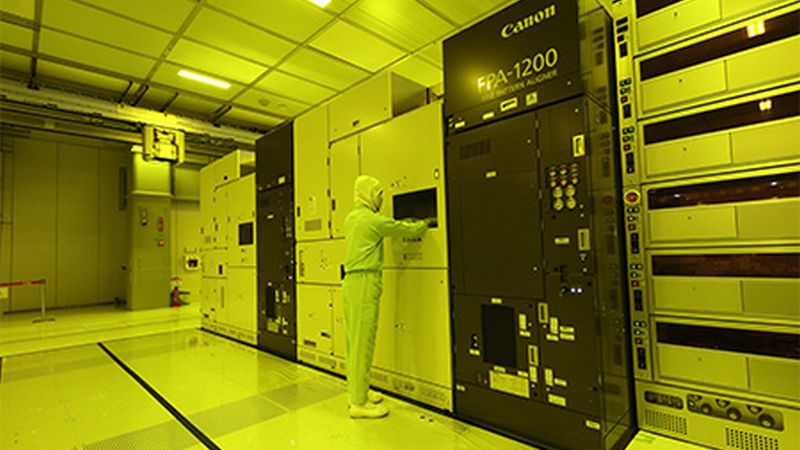Canon Inc. intends to price its new chipmaking gear significantly lower than ASML Holding NV's state-of-the-art lithography machines. The company is aiming to create a niche in the cutting-edge equipment sector, which is currently a focal point in the US-China tech rivalry. Canon's Chief Executive Officer, Fujio Mitarai, stated that the pricing of their new nanoimprint technology would be "one digit less than ASML's EUVs," referring to ASML's extreme ultraviolet lithography tools.

ASML, based in Veldhoven, Netherlands, is the sole supplier of such advanced chipmaking machines, each costing hundreds of millions of dollars. These machines are crucial for mass-producing the fastest and most energy-efficient chips, which require the integration of millions of transistors into every square millimeter of silicon. However, due to concerns regarding the tech supply chain and US pressure to restrict technology flows to China, ASML is currently prohibited from exporting EUV systems to Chinese customers.
Canon's new machines, which debuted last month, have generated hope in the market. Importantly, Tokyo's chipmaking export restrictions do not explicitly mention nanoimprint lithography. However, Mitarai doubts that Canon will be able to sell the machines to China due to the export ban on anything beyond 14-nanometer technology. Although an official from Japan's Economy Ministry declined to comment on the specific impact of export restrictions on Canon, Mitarai's understanding aligns with the current regulations.
Canon has been collaborating for approximately a decade with Dai Nippon Printing Co. and memory chipmaker Kioxia Holdings Corp. to develop nanoimprint processes. Unlike EUV lithography, Canon's technology directly imprints circuit patterns onto wafers, allowing for the creation of chips at geometries similar to the most advanced nodes, albeit at a slower rate. Canon claims that their machines consume only one-tenth of the power required by their EUV counterparts.
While Canon does not expect nanoimprint technology to surpass EUVs, Mitarai is confident that it will generate new opportunities and demand in the market. The company is already receiving numerous inquiries from customers. Previously, Canon focused on producing equipment for less advanced chips, but in 2014, they began investing in nanoimprint technology with the acquisition of Molecular Imprints Inc. As a supplier to Taiwan Semiconductor Manufacturing Co. (TSMC), Canon plans to establish its first new plant for lithography equipment in Utsunomiya, north of Tokyo, which is expected to be operational by 2025.
Regarding leadership transition, Mitarai, who has been Canon's president for a total of 18 years, including his tenure as CEO since 2006, expressed no desire to stay in power indefinitely. He stated that it is his responsibility to find a successor, but remained tight-lipped about the timing, potential candidates, and the extent of the company's search for the next CEO. Mitarai mentioned that the succession announcement will come as a surprise, with company employees being the first to know, followed by a subsequent press conference for the rest of the world to learn about it.







